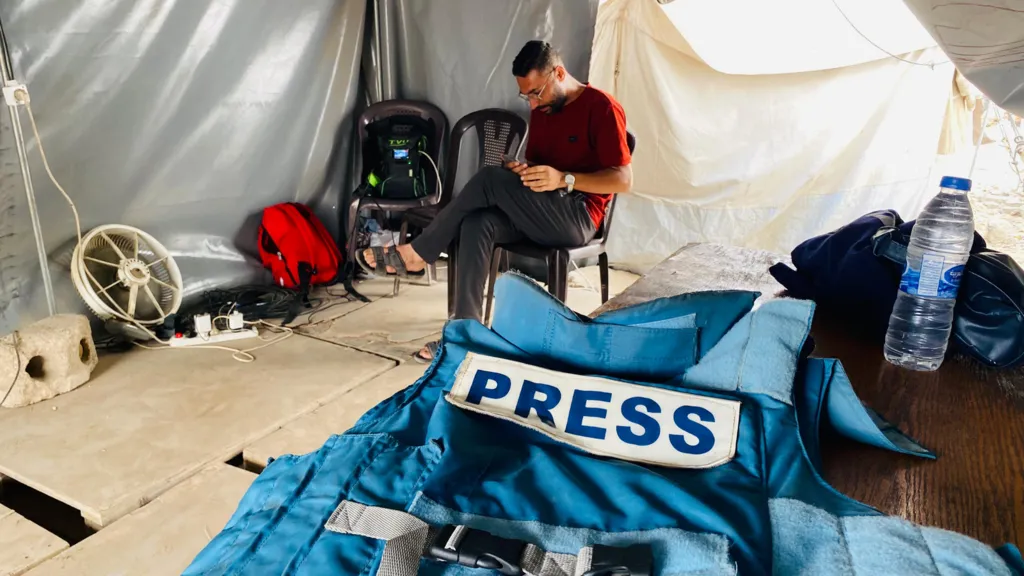I never imagined that one day I would be living and working in a tent, deprived of the most basic human necessities - even water and a bathroom. It's more like a greenhouse in the summer and a refrigerator in the winter, journalist Abdullah Miqdad told the BBC. After 22 months of war in Gaza, most journalists find themselves working in tents around hospitals in order to access the electricity and reliable internet connection they need to do their jobs. Power has been cut off across Gaza, so hospitals, whose generators are still functioning, provide the electricity to charge phones and equipment, and offer high points with better mobile reception. However, working at hospitals has not afforded them safety, with Israeli strikes on hospitals and their compounds killing a number of journalists during the conflict. On Monday, five journalists were among at least 20 people killed in a double Israeli strike on Nasser hospital in the southern city of Khan Younis.
'Exhausted, Hungry, and Scared': Life as a Journalist in Gaza

'Exhausted, Hungry, and Scared': Life as a Journalist in Gaza
Witness the harrowing experiences of journalists in Gaza as they navigate the dangers of war, facing hunger and deprivation while reporting on the ground.
In Gaza, journalists endure extreme conditions while battling hunger and fear for their safety. Working from makeshift tents near hospitals, they share firsthand accounts of the ongoing conflict and its impact on their lives. With power outages and constant threats from military strikes, their dedication to reporting the truth is underscored by the loss of their colleagues and the emotional toll of their work.

















